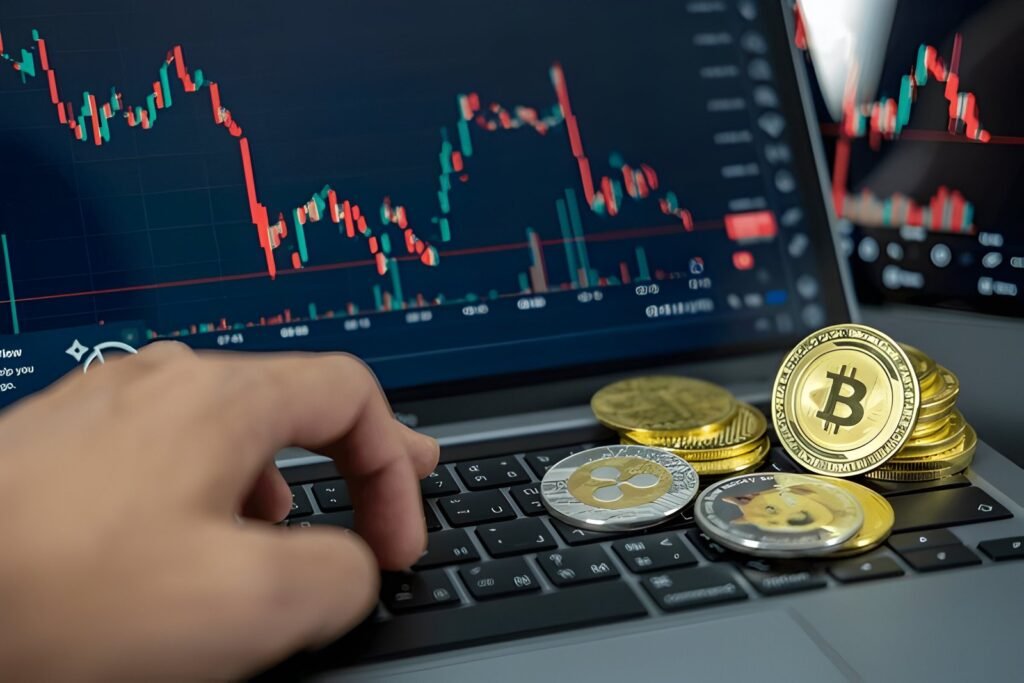Decentralized Finance, or DeFi, is revolutionizing the way we think about money, banking, and investing. But what exactly is DeFi, and why is it such a big deal? In this guide, we’ll break down the basics of DeFi, how it works, and why it’s important for the future of finance.

1. What Is DeFi?
DeFi, short for Decentralized Finance, refers to a new financial system built on blockchain technology that operates without traditional banks or centralized authorities. It uses smart contracts to automate financial transactions, allowing users to borrow, lend, trade, and earn interest directly on the blockchain.
Key Features of DeFi:
- Decentralization: Unlike traditional finance, DeFi applications run on decentralized networks, reducing the need for intermediaries.
- Accessibility: Anyone with an internet connection can access DeFi services, making financial services more inclusive.
- Transparency: DeFi transactions are recorded on public blockchains, providing full transparency.
2. How Does DeFi Work?
DeFi relies on smart contracts, which are self-executing agreements written in code that automatically perform actions when certain conditions are met. These contracts are deployed on blockchain networks like Ethereum, which host many popular DeFi applications.
Popular DeFi Applications:
- Decentralized Exchanges (DEXs): Platforms like Uniswap and SushiSwap allow users to trade cryptocurrencies directly without an intermediary.
- Lending and Borrowing Protocols: Platforms like Aave and Compound enable users to lend their crypto assets to earn interest or borrow against their holdings.
- Stablecoins: DeFi uses stablecoins like DAI, which are pegged to fiat currencies, to reduce volatility and facilitate everyday transactions.
3. Why Does DeFi Matter?
DeFi is more than just a trend—it’s reshaping the financial landscape. Here’s why it matters:
- Financial Inclusion: DeFi opens financial services to millions of people who are unbanked or underbanked, particularly in developing regions.
- Control and Ownership: DeFi gives users complete control over their assets without relying on banks or financial institutions.
- Innovation and Opportunities: DeFi enables new financial products and services that were previously impossible, such as yield farming, staking, and liquidity mining.
4. The Risks and Challenges of DeFi
While DeFi offers many benefits, it’s not without risks:
- Smart Contract Vulnerabilities: Bugs or exploits in smart contracts can lead to loss of funds.
- Regulatory Uncertainty: DeFi operates in a grey area, with regulations varying widely across countries.
- Market Volatility: DeFi projects can be highly volatile, and users must be prepared for price swings.
5. Getting Started with DeFi
For beginners looking to explore DeFi, here are some tips to get started:
- Research Before Investing: Understand the platform and the risks associated with each DeFi protocol.
- Start Small: Begin with small investments and gradually explore different DeFi services.
- Use Reputable Platforms: Stick to well-known and audited DeFi platforms to minimize risk.
Conclusion
DeFi is transforming the world of finance by providing accessible, transparent, and innovative financial services to anyone with an internet connection. While it comes with risks, the potential benefits make it a powerful tool for financial empowerment. Whether you’re looking to earn interest, borrow funds, or trade without middlemen, DeFi offers exciting opportunities that are redefining how we interact with money.
